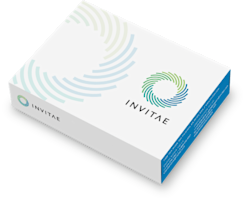
Invitae Comprehensive Lysosomal Storage Disorders Panel
Test code: 06170 •
Sponsored testing
In addition to insurance and patient-pay billing options, this test is also available through a sponsored, no-charge testing program.
Test description
The Invitae Comprehensive Lysosomal Storage Disorders (LSD) Panel analyzes genes associated with lysosomal storage diseases. This panel may be appropriate for individuals with signs and symptoms of any lysosomal storage disease. Additionally, this panel may be appropriate for those in whom a LSD is suspected due to an abnormal lysosomal enzyme study, abnormal tissue biopsy or abnormal newborn screen. Genetic testing of these genes may confirm a diagnosis and help guide treatment and management decisions.
Any individual with low enzymatic activity for any lysosomal enzyme must undergo variant analysis for disease confirmation. Most LSDs have known pseudodeficiency alleles, and these can cause false positive results on enzyme testing. Pseudodeficiency alleles result in 5%–20% of normal enzyme activity, but do NOT cause clinical disease.
Please note that this panel only includes targeted variant testing for Gaucher disease. Please refer to the Invitae Gaucher Common Variants Test for more information. For the gene PPT1, analysis includes the large, mostly intronic deletion NM_000310.3:c.124+1215_235-102del3627, as well as, the intronic variant NM_000310.3:c.125-15T>G.
Ordering information
Turnaround time:
10–21 calendar days (14 days on average)New York approved:
YesPreferred specimen:
3mL whole blood in a purple-top EDTA tube (K2EDTA or K3EDTA)Alternate specimens:
Saliva, buccal swab, and gDNA are also accepted.Learn more about specimen requirementsRequest a specimen collection kitClinical description
To view the complete clinical description of this panel, click here.
Assay information
Invitae is a College of American Pathologists (CAP)-accredited and Clinical Laboratory Improvement Amendments (CLIA)-certified clinical diagnostic laboratory performing full-gene sequencing and deletion/duplication analysis using next-generation sequencing technology (NGS).
Our sequence analysis covers clinically important regions of each gene, including coding exons and 10 to 20 base pairs of adjacent intronic sequence on either side of the coding exons in the transcript listed below, depending on the specific gene or test. In addition, the analysis covers select non-coding variants. Any variants that fall outside these regions are not analyzed. Any limitations in the analysis of these genes will be listed on the report. Contact client services with any questions.
Based on validation study results, this assay achieves >99% analytical sensitivity and specificity for single nucleotide variants, insertions and deletions <15bp in length, and exon-level deletions and duplications. Invitae's methods also detect insertions and deletions larger than 15bp but smaller than a full exon but sensitivity for these may be marginally reduced. Invitae’s deletion/duplication analysis determines copy number at a single exon resolution at virtually all targeted exons. However, in rare situations, single-exon copy number events may not be analyzed due to inherent sequence properties or isolated reduction in data quality. Certain types of variants, such as structural rearrangements (e.g. inversions, gene conversion events, translocations, etc.) or variants embedded in sequence with complex architecture (e.g. short tandem repeats or segmental duplications), may not be detected. Additionally, it may not be possible to fully resolve certain details about variants, such as mosaicism, phasing, or mapping ambiguity. Unless explicitly guaranteed, sequence changes in the promoter, non-coding exons, and other non-coding regions are not covered by this assay. Please consult the test definition on our website for details regarding regions or types of variants that are covered or excluded for this test. This report reflects the analysis of an extracted genomic DNA sample. In very rare cases, (circulating hematolymphoid neoplasm, bone marrow transplant, recent blood transfusion) the analyzed DNA may not represent the patient's constitutional genome.
You can customize this test by clicking genes to remove them.
Primary panel
Individuals under the age of 18 should undergo comprehensive pre-test genetic counseling before considering genetic testing for adult-onset forms of NCL. This is specifically important for the GRN gene, which, along with being associated with autosomal recessive NCL, is also associated with autosomal dominant frontotemporal dementia, a progressive neurodegenerative condition with an age of onset ranging from the 30s to 80s. For more information on genetic testing in minors, please refer to the ASHG position statement. "http://www.cell.com/ajhg/abstract/S0002-9297(15)00236-0()":http://www.cell.com/ajhg/abstract/S0002-9297(15)00236-0
Question about billing?
Find answers